Maine, a state nestled in New England, is renowned for its stunning coastline, charming historic towns, and especially its world-famous fresh seafood. Maine lobster has become a global culinary icon, but few realize that beyond lobster, Maine boasts a wealth of other enticing seafood like clams, mussels, cod, halibut, and more. If you’re a food enthusiast eager to delve deeper into Maine’s maritime culinary culture, there’s nothing better than joining a seafood cooking class here. This article serves as a detailed guide to experiencing these unique cooking classes, immersing yourself in the world of fresh seafood, and bringing home authentic Maine seafood recipes.
Explore Maine Seafood: Why Take a Cooking Class?
Maine is not just an attractive tourist destination with majestic natural landscapes; it’s also a seafood culinary paradise. Its abundant, high-quality seafood has shaped the region’s unique culinary identity. Instead of just enjoying seafood dishes at restaurants, participating in a seafood cooking class offers a deeper and more exciting experience:
1. Understand Fresh Ingredients Better:
Seafood cooking classes in Maine often emphasize using fresh ingredients, just caught from the sea. You’ll learn how to select the freshest seafood, differentiate various types, and understand the local methods of catching and preserving seafood. This not only enhances your culinary knowledge but also fosters greater appreciation for precious marine resources.
2. Experience Local Culinary Culture:
Cuisine is always an integral part of culture. Joining a seafood cooking class is a fantastic opportunity to learn about Maine’s unique culinary culture. You’ll learn traditional recipes, distinctive cooking techniques, and the stories behind each dish. Professional chefs, often locals, will share family secrets and valuable experience, helping you deeply appreciate the flavor and essence of Maine cuisine.
3. Enhance Your Cooking Skills:
Whether you’re a beginner or an experienced cook, Maine seafood cooking classes offer valuable lessons. You’ll be guided through basic skills like prepping and cleaning seafood to more complex techniques like steaming, grilling, frying, and sautéing. This will boost your confidence in the kitchen, enabling you to prepare delicious and nutritious seafood meals for family and friends.
4. Savor Seafood You Prepared Yourself:
Nothing beats enjoying the fruits of your own labor. After each class, you’ll get to savor the delicious seafood dishes you personally prepared. This is a well-deserved reward for your efforts and an opportunity to evaluate flavors, learn from the experience, and refine your skills.
5. Combine Travel with a Unique Culinary Experience:
Taking a seafood cooking class is a wonderful way to blend travel and culinary exploration. You can spend time discovering Maine’s famous tourist spots, then join cooking classes to gain deeper insights into the local culture. It promises a memorable trip, leaving you with invaluable memories and knowledge.
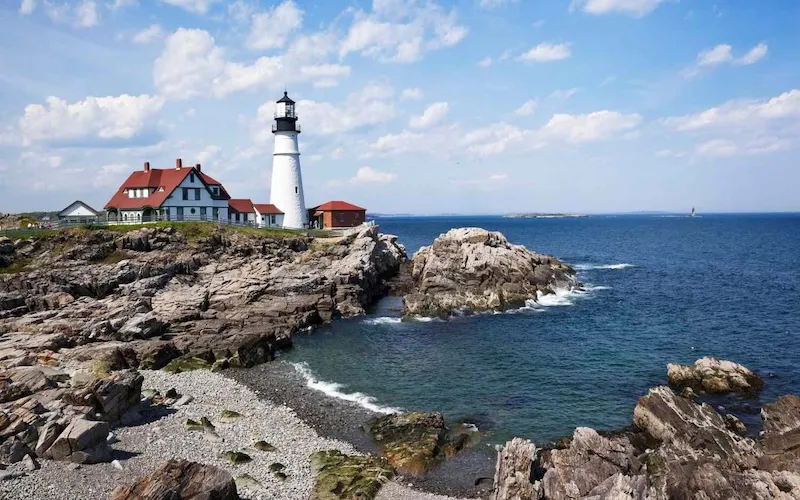
Popular Types of Maine Seafood Cooking Classes
Seafood cooking classes in Maine are diverse, catering to various interests and skill levels. Here are some popular types you might consider:
1. Lobster-Focused Classes:
Lobster is Maine’s most famous delicacy, so it’s no surprise that classes specializing in lobster are highly popular. These courses focus on preparing lobster dishes, from simple ones like steamed lobster or garlic butter grilled lobster to more elaborate creations like lobster bisque or lobster rolls. You’ll learn how to choose live lobsters, prep them correctly, and master secrets to keeping the lobster sweet, firm, and naturally delicious.
2. Comprehensive Maine Seafood Classes:
If you want to explore a wider variety of Maine seafood, comprehensive courses are a suitable choice. These classes often cover multiple types like clams, mussels, oysters, cod, halibut, etc. You’ll learn to prepare appetizers, main courses, and even desserts using different kinds of seafood, broadening your culinary knowledge and skills.
3. Themed Classes:
Some courses are designed around specific themes, such as seafood chowder classes, seafood grilling workshops, or classes fusing Mediterranean cuisine with Maine seafood. These classes delve deep into a specific area, helping you become an expert in that niche.
4. Classes for Families and Small Groups:
Many cooking schools in Maine offer private classes specifically for families or small groups of friends. This is a great opportunity for families to cook together, create lasting memories, and strengthen bonds. These classes are often flexible, tailored to the skill levels and preferences of all members.
5. Online and In-Person Classes:
Besides in-person classes, you can also find online Maine seafood cooking courses. Online classes allow you to learn anytime, anywhere, saving travel time and costs. However, if possible, attending an in-person class provides a more hands-on experience and better interaction with the chef and fellow students.
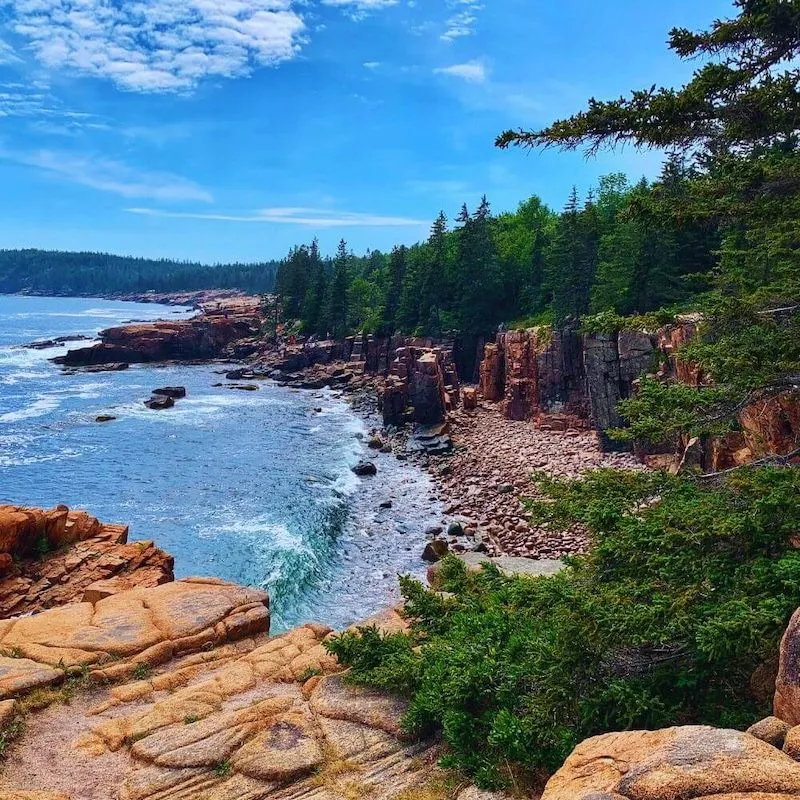
What to Expect in a Typical Maine Seafood Cooking Class
While each Maine seafood cooking class may have different content and schedules, a typical course generally includes the following components:
1. Introduction to Maine Seafood:
The beginning of the class usually introduces Maine’s signature seafood, seasonality, nutritional aspects, and how to select the freshest catch. You’ll learn about the origin, history, and the role of the fishing industry in Maine’s economy and culture.
2. Guidance on Prepping and Cleaning Seafood:
This crucial part helps you master the basic skills needed to prepare seafood before cooking. You’ll learn how to properly clean lobster, clams, mussels, oysters, fish, etc., ensuring hygiene and preserving the fresh flavor of the seafood.
3. Hands-on Cooking Practice:
Most of the class time is dedicated to hands-on preparation of seafood dishes. Under the chef’s guidance, you’ll perform each step of the recipe yourself, from preparing ingredients and seasonings to applying techniques like steaming, grilling, frying, sautéing, and making soups. You’ll learn to use signature Maine seasonings to create unique flavors.
4. Tasting and Evaluation:
After completing each dish, the class will taste and evaluate the results together. The chef will share insights, comment on each person’s dish, and offer advice for improvement. This is an opportunity to learn from each other, exchange experiences, and enjoy your creations.
5. Sharing Recipes and Tips:
At the end of the course, you’ll receive detailed recipes for all the dishes covered, along with secrets and tips for cooking delicious, restaurant-quality seafood at home. You can take these recipes home and confidently showcase your skills to family and friends.
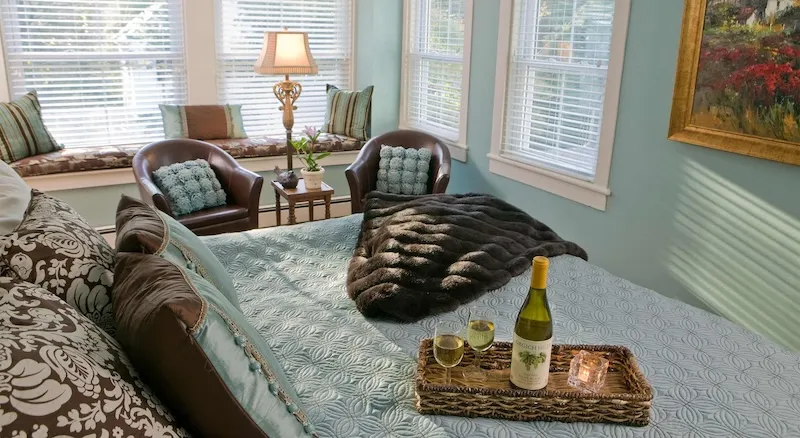
Where to Find Maine Seafood Cooking Classes: Some Suggestions
Maine has numerous cooking schools and restaurants offering quality seafood cooking classes. Here are a few suggestions you might consider:
1. Stonewall Kitchen Cooking School (York):
This renowned cooking school offers a variety of courses, including classes specializing in Maine seafood. Stonewall Kitchen Cooking School is highly rated for its quality instruction, modern facilities, and professional chefs.
2. Maine Lobster Chef (Kennebunkport):
If you have a particular fondness for lobster, Maine Lobster Chef is a must-visit. They specialize in lobster cooking classes ranging from basic to advanced, helping you become an expert on this iconic dish.
3. The Saltwater Classroom (Harpswell):
The Saltwater Classroom provides a cooking experience close to nature. Classes are often held outdoors, by the shore, or even on a boat, allowing you to fully experience the beauty and flavor of the Maine coast.
4. Browne Trading Market (Portland):
Browne Trading Market is a famous seafood market in Portland that also hosts seafood cooking classes right in the store. You’ll learn to select the finest fresh seafood and prepare enticing dishes under the guidance of top chefs.
5. Online Cooking Classes (Various Platforms):
If you can’t travel to Maine in person, you can search for online Maine seafood cooking classes on platforms like Udemy, Coursera, Skillshare, etc. Many Maine chefs and cooking centers have expanded online to reach more students.
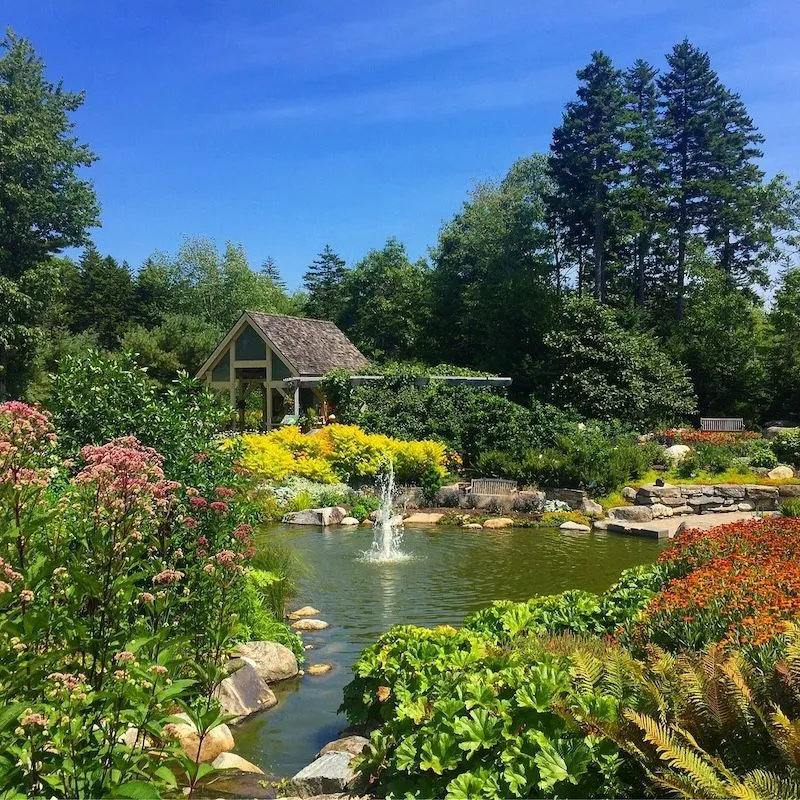
Tips for Making the Most of Your Maine Seafood Cooking Class
To ensure the best learning experience and fully enjoy your Maine seafood cooking class, keep these tips in mind:
1. Define Your Goals and Interests:
Before enrolling, clarify your objectives and preferences. Do you want to focus on lobster or explore various types of seafood? Do you prefer traditional or modern cooking styles? Are you looking for a short workshop or a multi-day course? Defining your goals will help you choose the most suitable class.
2. Research Course Information Thoroughly:
Carefully review details about the class, such as content, duration, cost, location, chef, and reviews from previous students. Read the course description carefully and check if the curriculum meets your needs. If you have any questions, don’t hesitate to contact the cooking school for advice.
3. Book Your Class Early:
Maine seafood cooking classes, especially during peak tourist season, often fill up quickly. Therefore, if you’ve found a class you like, book it early to secure your spot and potentially receive early bird discounts (if available).
4. Prepare Mentally and Dress Appropriately:
Come with an open mind, ready to learn new things. Wear comfortable, practical clothing that you don’t mind getting a little messy. If there are specific attire requirements (like an apron or chef’s hat), the cooking school will inform you in advance.
5. Enjoy the Experience:
Savor every moment of the class, from learning new knowledge and practicing cooking skills to interacting with fellow food enthusiasts. Don’t be afraid to ask the chef questions, share experiences with classmates, and discover the fascinating world of Maine seafood cuisine.
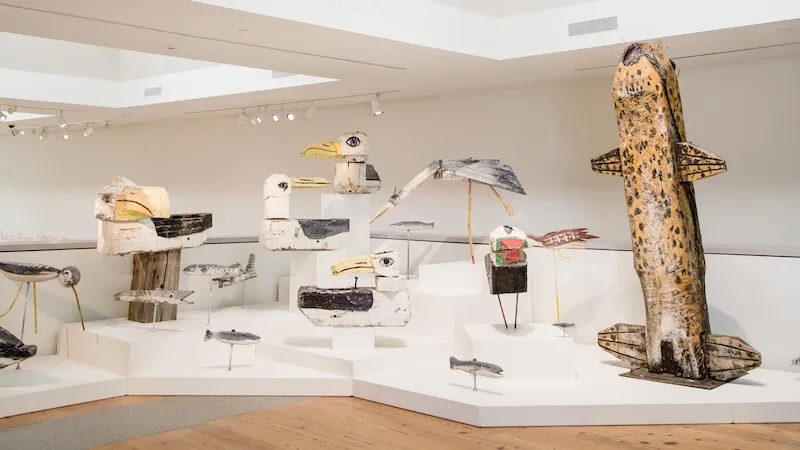
Conclusion
Participating in Maine seafood cooking classes is not just an opportunity to enhance your cooking skills but also a journey to explore the unique culinary culture of this region. From learning about fresh ingredients and mastering traditional recipes to savoring dishes you’ve made yourself, you’ll gain memorable and profound culinary experiences. If you love seafood and want to discover Maine in a special way, don’t miss the chance to join these seafood cooking classes. Rest assured, after the course, you’ll return home not only with delicious recipes but also with priceless memories and knowledge about Maine’s food and culture.